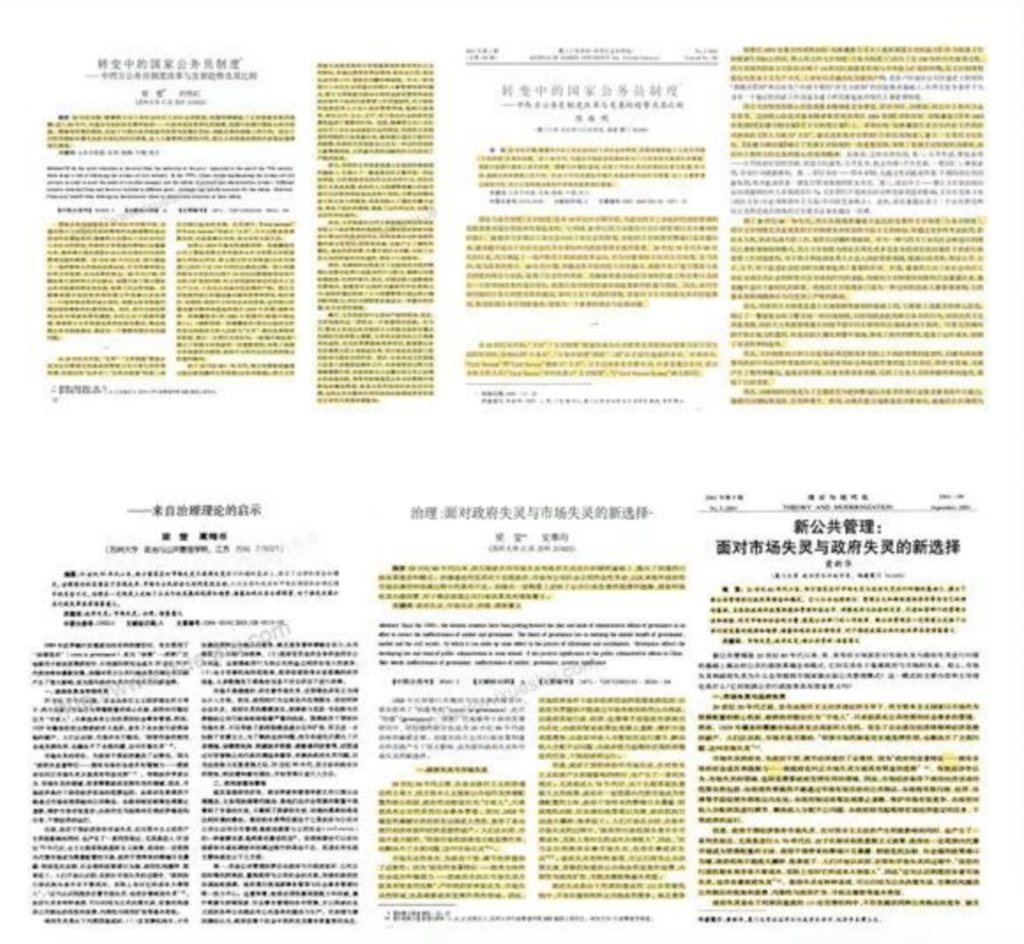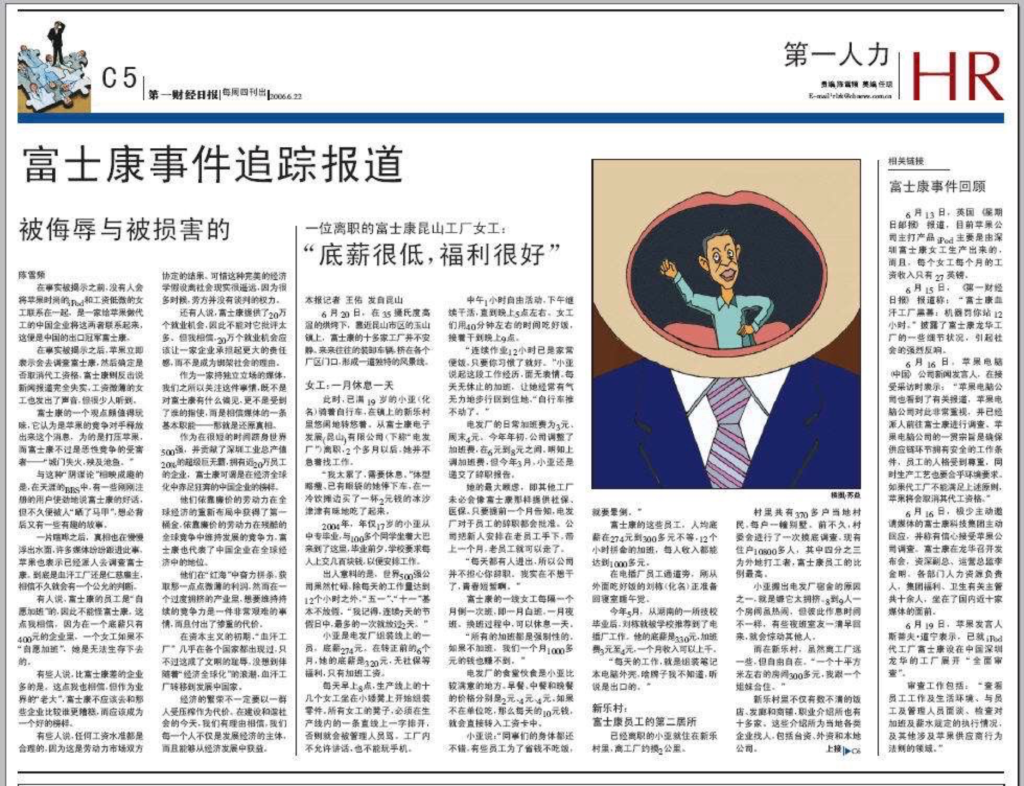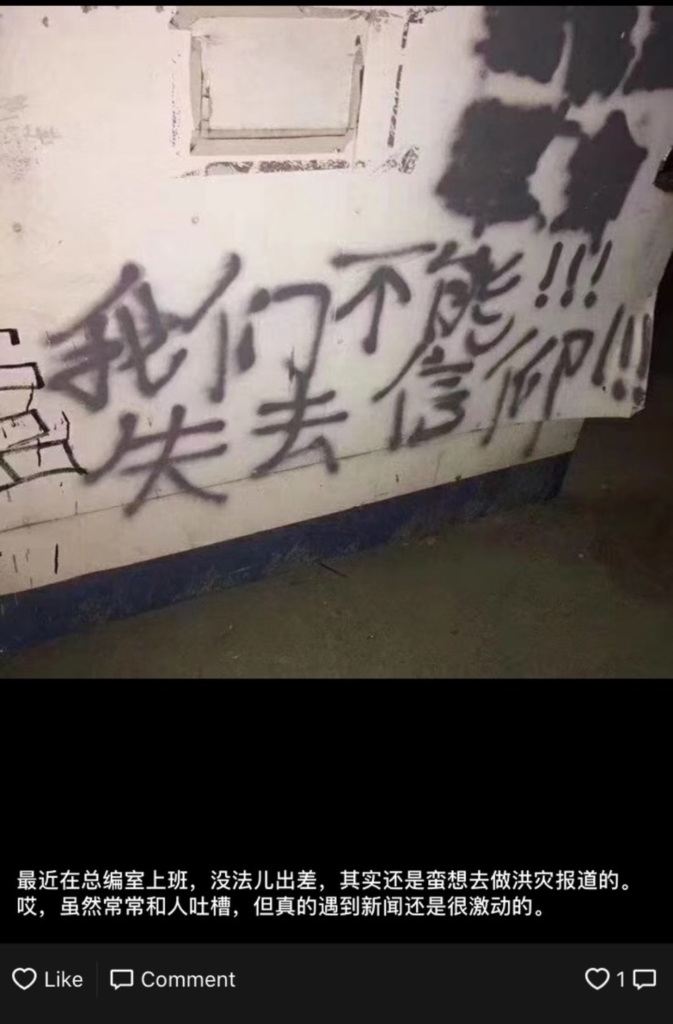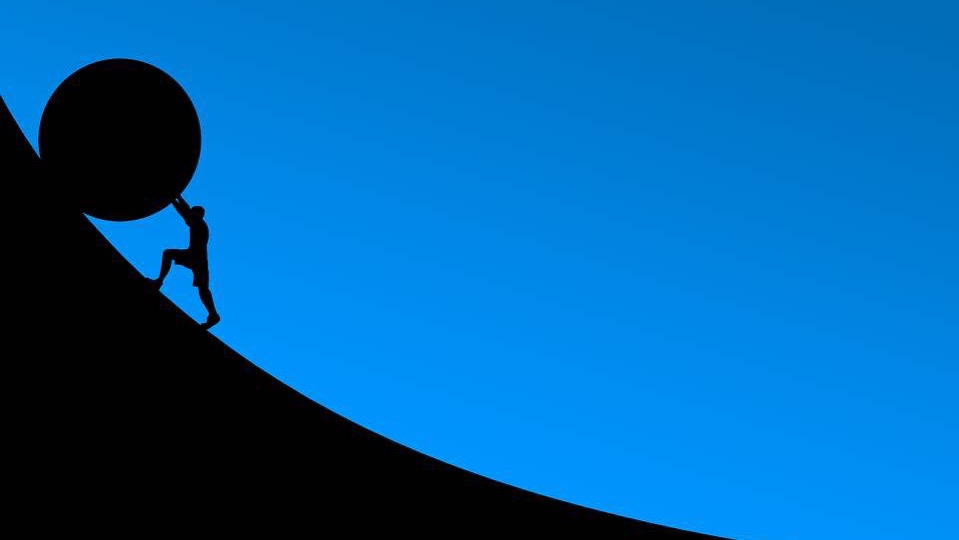Chinese investigative journalists are facing double barriers of investigation and censorship, how could they break through them?
The desk is piled high with books, leaving only a square in the middle for a notebook and a laptop. Xi Jiang had in the library for almost a week. He couldn’t remember how many academic journals had he rummaged through.
Xi was searching a name: Bing Wang, a Chinese scholar accused of plagiarism. He looked into Bing’s work on CNKI, similar to Google Scholar, and tried to identify the plagiarized parts.
“This is an exclusive lead I got, and it’s also the only possibility to report academic plagiarism in a silenced media environment,” said Xi. Plagiarism scandals have become a taboo topic for investigative reporting in recent years, as the authority consider this topic could cause a negative impact to the society.
He explained that in China, less discussed topics crave fewer attentions from the censors which is possible to be allowed to publish. Xi finally got a response from the university.
The administration rejected his interview at first. Then, Xi showed the evidence to the school and claimed he got all the records. The school finally agreed to talk
Except for providing evidence forced the university to respond, another reason for comparing so many papers is that he intends to compare the text in the report. He extracted the original text and compared the repetition rate to make sure his report to be objective, this kind of practice was also a safer way for himself. Xi did not want to get himself and his reporting into trouble. Objective comparison of literature rather than giving a direct evaluation can avoid “being a troll”.

“The most important strategy for publishing investigative reports is to keep all the information and process 100% correct.” This is Xi’s experience, to avoid certain details that would possibly invite censorships or retaliation form the exposed party.
This is not a strategy only Xi is employing. In China, investigative journalists have received threatening messages from the people being exposed, and the equivalent of offering a weapen to your enemy to against you if a fact is discredited or falsified.
In 2006, A reporter named Wang You from CBN weekly was sued for “infringing on the company’s reputation”. The journalist was required to compensate ¥30,000,000 (£3,300,000) to Foxconn, iPhone’s largest manufacturer, for the coverage of its employees’ extrs-long work hours forced by the company.
While Foxconn withdrew the lawsuit due to the pressure from the public, the event sent a big chill to investigative journalists. Wang you, the reporter sued by Foxconn, alerted his colleagues with his experience.
Wang You got into trouble because there were some problems with his interview process. The main content of Wang You’s first report was learned through QQ, a popular messaging app in China. He did not interview the informant face-to-face and did not go to the labor supervision department in Shenzhen to understand the situation.
Chen Huan, a reporter from 21st Century Business Herald, pointed out these are “obvious mistakes”. Wang You’s report interviewed the party through QQ and did not contact them face to face. Besides, there are some direct quotations in the report, which will be troublesome if there is no recording or other proof.
Even so, Huang Rongnan, a lawyer defending journalist Wang You. Huang believes that if Wang You loses the lawsuit, the impact will be immeasurable. He told China Youth Daily that “if a lawyer apologizes, the lawyer will be ruined. For reporters, even if they pay 1 yuan in compensation, it will be a blow to him, and his pressure will be very great.” Huang thought compensation will pose a threat to the journalist’s reputation.

To avoid a similar situation, the media outlets are becoming more cautious then. Zoey, a journalist who worked for a media in Beijing said that every piece of news would be reviewed at least five times before published.
Because of repeated checks and careful comparisons, Xi published the article that exposed Bing Wang’s plagiarism smoothly. The investigative report no doubt became “hot cake”, which attracted the attention of the society. In the end, Bing Wang was removed from his position as a postgraduate tutor.
Most of the time it is not that easy to get reports published. Xi said he censored article, either deleted or unable to be published, are far more than his reports published successfully.
Once Xi rushed to the scene to report the leaking of Carbon9 in Quanzhou to get first-hand information, but when he saw his report published he found that his efforts were completely wasted. No interviews were left.
Xi found his report was same to other publications which didn’t send reporters to the scene. They just slightly polished the press release from the government and let them go on the site.
“I could hardly recognize that I had written it,” Xi felt frustrated. He said that even if investigative journalism was limited, it made sense to share the victim’s alive. “Let these people have an agency for their joys and sorrows, and also leave some records for these people.”
Although unsatisfied, he fully understood what his leaders were doing. Reports without exclusive content will not stand out, which means that the censors are less likely to target. It’s easier to bear a cutting article than the whole piece might be removed from the site.Too much resistance can cause publication to be stranded, which is a well-known industry practice. Not every time journalists were able to use strategies as a weapon to break through the censorship wall.
Amanda, a lecturer at Yangzhou University ,shared her failure experience to reserve her articles while working as a journalist at a Hangzhou-based publication.
Once she received a message from her informants that a village on the Yangtze River was burying chickens killed by bird flu, she drove to the interview with a male cameraman. She did not expect it to go well and might have to use some strategies to report it before the ban released
After arriving at the village, the head of the village tried every means to stop them as he did not want his village to be exposed to negative news. Despite that, Amanda and her colleague still got the material they needed.
When they decided to leave, the village chief reached their car window and shook hands with Amanda, he said “I’ll appreciate if you could take good care of us” wearing a warm smile. When the chief’s hand removed, Amanda found a thick envelope was left in the car. She knew that the envelope must be stuffed with money.
She exchanged glances with the cameraman who was ready to start the car, quietly count down three seconds, she threw the envelope out the window at the first second the car starts.
Amanda thought this would cut off the opportunity for the village chief to bribe her, but a few minutes later, she looked the rearview mirror and saw the chief had almost caught up with them in his car.
She urged the cameraman to drive the car as fast as possible, but the chief’s car kept chasing. Fortunately, the cameraman was familiar with the nearby roads, thus after half an hour of “Fast and Furious”, they finally got rid of the chief’s car.
It took them four hours to get back on the usual two-hour journey. When they returned to the television station, the village chief’s car was waiting for them at the front door of the building. Amanda realized that if she did not publish the report as soon as possible, she might face more resistance.
Amanda stole back to her office through the back door, stayed up all night cutting the film and planned to put it on TV the next day. What She didn’t expect her leader would ask her not to run the story at their first meeting next day.
“It seems that the chief gave away the money even though I confiscated it,” she told her students.
Amanda said she did not mean to teach them anything by sharing this , because she still did not know how to understand or tackle the situation. “It was just a ‘precaution’ for future journalists,” said Amanda.
“Power and interest are the steel cage, and the strategy is just a crowbar, the success is determined by how strong the cage is, not how strong the crowbar is,” Amanda spoke calmly, who has quitted her journalism job for a few years.
In recent years, as the media industry has been constrained, many capable journalists have switched career paths or left the industry. According to Xi, his colleagues are few remained. He says it is not impossible for him to change his career.
Xi pointed out that the number of topics were dwindling these years as the censorship became stricter these years, thus the existence of specialized investigative journalists appeared to be unnecessary. When it comes to ideals, the topics he wants to write are always off-limits, and when it comes to reality, he has lost the least expectation of his salary.
As a result, the mental pressure of investigative journalists has been increasing, which has caused a great deal of harm to their physical health.
Xi talked about his depression as if he had a cold. “The rates of insomnia and depression among journalists are far too high,” said Xi, “and the cause is the same.”

A psychiatrist Called Rihui He published his opinion on the website and analyzed the situation. He said that investigative journalists face a different kind of danger, they may be oppressed, intimidated threatened, or even hurt in their quest for truth.
“If the news report is not as they think, which conflicts with their journalistic ideals and feelings, it will also lead to a serious lack of professional achievement,” said psychiatrist He.
He also pointed out that except for the daily pressure from deadline and interview, the trauma comes from the news event itself that may affect the journalists. Although professional ethics require journalists to act as calm and objective observers, they will inevitably witness the incident and feel the negative emotions of the person concerned.
The bad images and “negative energy” are easy to sink into the journalists’ implicit memory, and they will also produce corresponding negative emotions and negative cognition, which may from trauma.
“There are not a few journalists who are in the state of sub-mental health now, insomnia, hair loss, depression, and obesity are common symptoms. If long-term mental pressure is not released, journalists may also develop ASD or PTSD,” said He.
“Good thing I’m not bald, though I’ve put on a lot of weight,” Xi gave a wry smile with such ego speaks, he gained at least 10kg in the three years after he had been a journalist.
Xi now rotated to the editorial office, saying it was the common aspiration of both him and his leaders. He now lives a daily life of drinking tea and reading newspapers. All the work he needs to do is to correct the wrong words in the reports.
“I would still go back to being an investigative reporter. After all, that’s my passion.” Although Xi is unhappy with his life as an investigative journalist, he has no plans to change careers.
“Sometimes, many people, like Sisyphus in ancient Greek mythology, push the stone up again and again, accept it roll back to its original place again and again,” .
Xi jiang
“But just like Bing Wang has been punished, every time I thought of this, I will feel that the stones that have been pushed up the slope have not fallen back to their original place.”
(To protect the security of interviewees, Xi Jiang, Bing Wang, Wang You, Zoey, Amanda are pseudonyms.)
